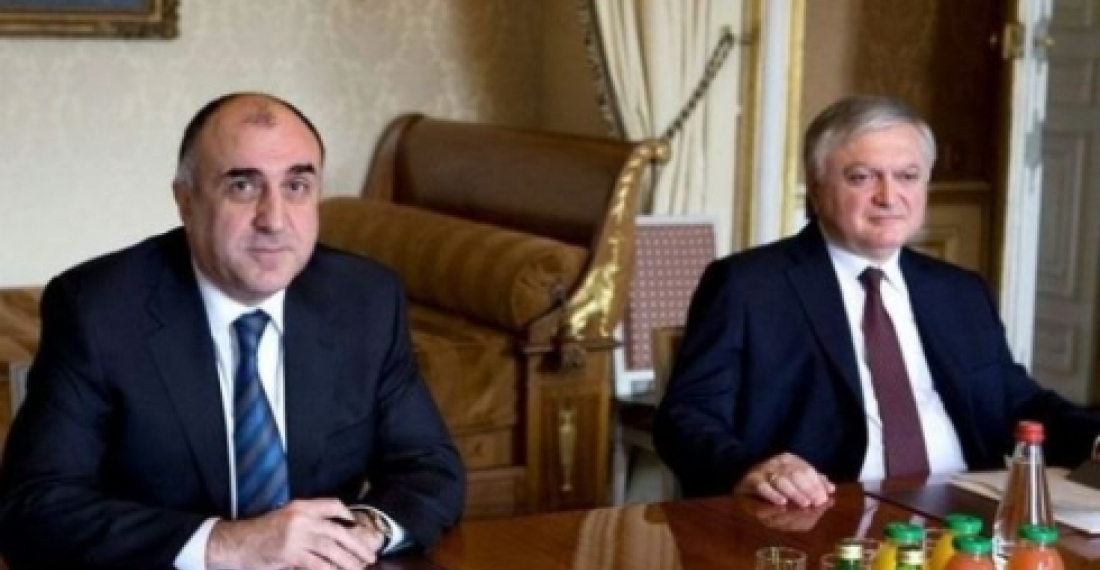The Foreign Ministers of Armenia and Azerbaijan met in New York on Friday, 25 September, with the facilitation of the co-Chair of the OSCE Minsk Process. The meeting took place in a tense moment in the conflict between the two countries over Nagorno Karabakh. Earlier the two foreign ministers held separate meetings with the co-Chair. No statement has been issued so far by the co-Chair after their meeting but Azerbaijani sources report that the co-Chair now have plans to visit the region again.
As the talks were going on in New York on Thursday and Friday there was a sharp increase in violence in the Nagorno-Karabakh conflict zone and on the international border between Armenia and Azerbaijan. Both sides have issued statement accusing each other of initiating the violence in an attempt to disrupt the New York discussions.
On Thursday three Armenian civilians were reported killed in incidents around the District of Tavush in the northern sector of the international border between the two countries.
On Friday heavy fighting was reported in the Karabakh conflict zone. Four Armenian soldiers of the self-declared Nagorno-Karabakh Republic (NKR) were killed and at least sixteen others wounded, according to the NKR Defence Ministry. Azerbaijani said it had suffered one fatality and several of its soldiers were also wounded.
The two sides give very different accounts of the incidents and commonspace.eu has no possibility to verify the accuracy of the different reports.
Stepanakert in mourning after deaths
The administrative capital of the self-declared Nagorno-Karabakh Republic, Stepanakert, was in mourning on Saturday following the casualties on Friday. Festivities to mark the day of the city were cancelled on orders of the mayor, Suren Grigoryan.
Foreign Ministers of Armenia and Azerbaijan trade accusations at New York talks.
Both sides have made comments following the talks in New York.
The Azerbaijani News Agency APA quotes, Azerbaijani Foreign Minister Elmar Mammadyarov as saying that "the status quo which is based on the occupation of Azerbaijani territories is unacceptable and inconsistent. He said Azerbaijan will never accept the occupation of its territories. The minister added that Armenia seeks to damage the negotiations by trying a variety of provocative acts and escalating the situation along the contact line of troops and the Armenia-Azerbaijan border, saying Armenia actually intends to continue the aggression and occupation".
APA quoted Mammadyarov as saying that "Armenia prevents contact between Nagorno-Karabakh’s Azerbaijani and Armenian communities who would effectively contribute to trust building, stressing that Armenian troops must withdraw from the occupied lands for the settlement of the conflict. He noted that Azerbaijan is taking part in the negotiations to solve the conflict. Nonetheless, if the negotiations do not result in the liberation of the [occupied] territories, Azerbaijan will take all necessary actions to ensure its territorial integrity, sovereignty, and border inviolability. As an aggressive and occupying state, Armenia will bear full responsibility for any step to be taken.”
On his part, Armenian Foreign Minister Edward Nalbandian also commented after the talks. In a statement on the website of the Ministry of Foreign Affairs of Armenia the Minister "condemned and characterised as unacceptable the gross violations of the ceasefire with the heavy artillery, which claimed human losses". He said that “to divert attention from the outrageous human rights situation in Azerbaijan and the growing criticism of the international community in towards this, Baku escalates the situation on the Line of Contact with Nagorno-Karabakh and the border with Armenia with considerable unforeseen negative consequences. With this provocations Baku demonstrates its disregard both to the human life and to its own commitments”.
Referring to the Co-chairs September 25th statement, Minister Nalbandian said: “It is Azerbaijan that continuously rejects the proposals on confidence building measures and the initiatives aimed at the stabilisation of the situation and therefore, it is obvious to whom the messages of the statement are addressed. But it leads to an impression that Baku deliberately doesn’t pay attention to what the international community calls upon through the mediator states".
The Armenian MFA statement adds that "Minister Nalbandian attached importance to the reaffirmation by the Co-chairs of the proposal on the creation of an investigative mechanism on the ceasefire violations to which Armenia and Nagorno-Karabakh have expressed their agreement on numerous occasions. It would allow to determine with more certainty the side responsible for the ceasefire violations and incidents. “Azerbaijan refuses this, because it wants to have its hands free, and without scrutiny of international scrutiny to continue its provocations on the Line of Contact and borders”. The Minister stated that “Baku refuses not only the initiatives of the Co-chairs on confidence building measures and rejects the proposals of the mediators on the conflict resolution, which have been made public in five statements of the Heads of the Minsk Group Co-chair countries, but also casts aside any reference to them, which once again was vividly demonstrated during the EU eastern Partnership summit in Riga”.
source; commonspace.eu with APA, news.am, the press service of the foreign Ministry of Armenia and other agencies.
photo: Foreign Minister Mammadyarov of Azerbaijan and Foreign Minister Nalbandian of Armenia (archive picture).







